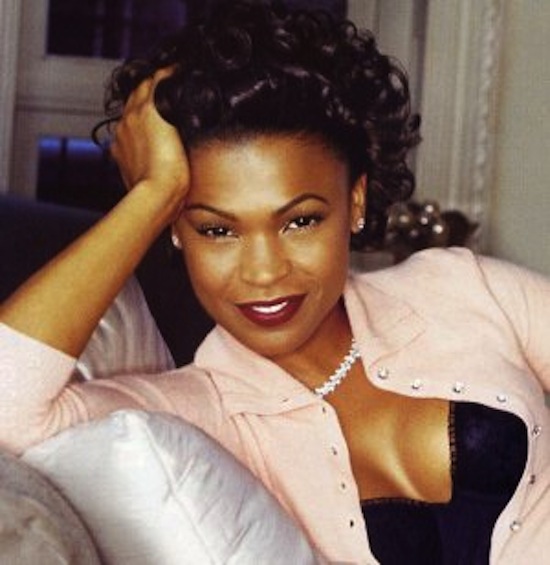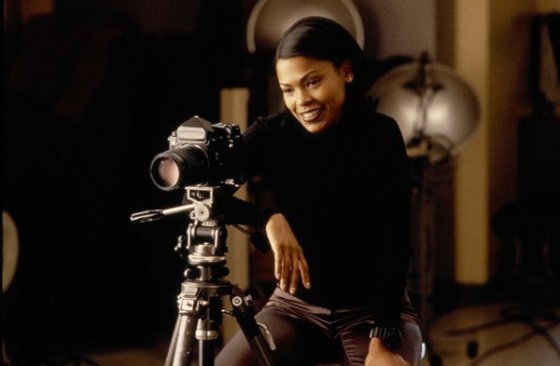While vacationing with my wife we came across the new Jet Magazine that presented Nia Long on the cover. We often surf the newsstands looking at the big stories covered, and guess why editors make their decisions to feature certain people in their publications. We scan through many and only purchase and read a few. Jet Magazine is usually among the prints we can read entirely within a few minutes. This time was a little different. It was something about Nia Long on this particular cover that reminded me of how she was my ultimate celebrity crush in college. I even remember dating a girl because I thought she resembled Nia. As I recalled how I fawned over her in “Love Jones,” “The Best Man,” and maybe a number of other movies I watched simply because she was in them, I thought a little about why I was so attracted to her. Then I bought the magazine.
Falling For Nia Long
Amazingly, looking at the cover rushed a montage of songs to the front of my thoughts: “You’re All I Need”- Method Man and Mary J Blige, “Song Cry” by Jay-z, “Bonita Applebum”- Tribe, “Buddy”- Native Tongues, “Ms. Fat Booty”- Mos Def, and a few others. Even though I listened to some “affectionate” rap songs that were harsher and carried more enflamed language deriding women rather than showing tenderness, I realized that if I thought about my wife in the ways described in any of these songs I probably wouldn’t have married her. Not that the songs mentioned above say anything particularly hurtful, but they do present a playful and even childish relationship men have with women; one that acknowledges a man’s disconnection from responsibility to her and only willing to ride the wave of attraction. Admirably, all these songs recount how women are significant and necessary, but have an underlying sentiment that she’s a temporary prop in his life.
Imbedded In Our Culture?
Many blame Hip Hop culture for the misogynistic atmosphere in our country, but forget that Western Society was founded on patriarchic ideals. For a long time male chauvinism has been the model for every little boy in church, school, television, the work place, and especially in our homes. Even when rappers consciously make bold statements to correct unethical practices there is an imbedded superiority that displays a woman as a tool to complete the task. In “I Used to Love Her,” Common’s song is an extended metaphor that compares a woman to Hip Hop. Along with a few endearing announcements of her beauty, he announces she is disloyal, rotten, a hoe that he can no longer trust. Of course his attack is on the changing Hip Hop culture, and he believes the art form isn’t pure anymore because it’s being used primarily for monetary gain. Common idealizes Hip Hop as a celibate art that rises from urban ghettos and is deflowered by corrupt entrepreneurs, but we all know there was always a for-profit aspect of Hip Hop. The difference was, and still is, that the sole rights of creativity were manipulated. Common’s message is to call attention to the corporate dilution of Hip Hop and maintain what’s real about it. Nevertheless, even as he displays his disgust with Hip Hop the images that manifest gives a peek of his sentiments about women: those that are disloyal, promiscuous, and ignorant. The metaphor is compelling and well crafted, but reveals to his audience an objectification of a woman.
Has The Music Evolved?
When you look at mainstream rap songs it’s obvious that the business of popular music encourages the misogynistic legacy to continue. Rick Ross was recently reprimanded by some radio stations for a new song “U.N.E.N.O” that graphically promotes rape culture. The irony behind this recent assault on Ross’ lyrics is that most of his catalogue supports the mentality presented in this song. With that said, it’s sad to say even when rappers aren’t as obscenely demented as Ross, it’s still appears to be a struggle to get around objectifying women even when they try. Kendrick Lamar’s “Poetic Justice” is far from Ross’ injurious production, but still focuses most of his love tune on the exterior aspects of the woman. Although his word play is sweet, the Janet Jackson sample takes you back, and the backdrop of the song is a rhythmic love letter that sways you into listening, the song is more about his lust than the girl. Drake’s verse only completes these images of the sexy woman “that can get it.” As men we’re taught that there is something wrong if our primary focus with a woman isn’t sexual in some way. If we didn’t have rap music this would still be the case.
Why Change?
I don’t think I’ve ever disrespected or demeaned a woman to take power away from her, consciously. This implies, to a degree, I’ve contributed to the culture of male chauvinism in our society. I mean I don’t refer to women using derogatory names. Their purpose is as equal as mine, but I have expected certain characteristics in women that are limiting. It takes a long time to consider the detrimental psyche and practices that erodes at a woman’s power in society. I read the Nia Long article in Jet Magazine and imagined a beautiful mother that worked hard to make a way for herself. This definitely wasn’t the same beauty I admired in college. As a married man I pride myself on continuos reconfiguration, and determining: how I can be better, how I can inspire my wife, and how I can improve my relationship with her. One step toward this is acknowledging my wife for more than her exterior attributes. As difficult as it is to overcome programming we develop from our youth, I’ve made conscious efforts to appreciate her for her know-how, organization, rational thinking, loyalty, and other great qualities that add to my life. How do you just turn off innate attractions? I admit, a good part of the reason I married my wife was because I thought she was physically stunning. However, I can definitely subdue physical cravings to empower and encourage her when its needed, but do rappers or most men have the same motivation?




Reblogged this on and commented:
Nia Long…Between The Hooks